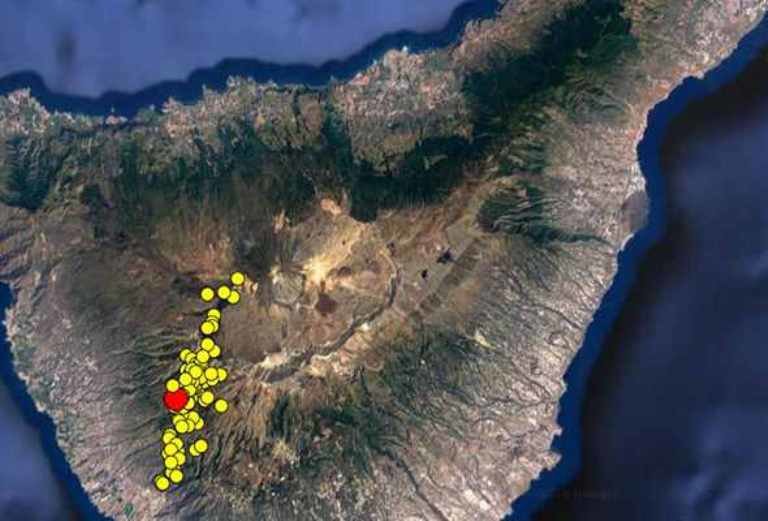
FEARS are mounting that a huge volcano on the island of Tenerife could erupt after nearly 100 mini earthquakes were reported in FOUR HOURS in the region
The Volcanology Institute of the Canary Islands (Involcan) reported a significant spike in seismic activity on Sunday afternoon.
Some 92 microquakes were recorded in Adeje and Vilaflor in the space of four hours, with one measuring more than 1.5 on the Richter scale.
The majority of the quakes took place between 7 and 13km below ground sparking fears Mount Teide could be about to blow.
Involcan has sent teams to the area to measure the amount of carbon dioxide in the atmosphere following the quakes, which they described as a "seismic swarm" which is "abnormal" for the region.
An increase in carbon dioxide is said to be an early indicator of volcanic earthquake activity that can precede an eruption.
Involcan said in a statement: "We are registering an important seismic rally on the island of Tenerife.
"In principle, these earthquakes are very low magnitude, consistent with those that occur in active volcanoes.
"The number of earthquakes is provisional pending the analysis of the signals more closely, but we can qualify this activity as a seismic swarm whose pattern is an alignment with prevailing direction northeast to southwest ".
But Involcan director Nemesio Perez told local media there is no reason for alarm as his teams continue to monitor the site.
Mount Teide last erupted in 1909 and the last reported increase in seismic activity dates back to 2003 when a rift opened on the north-east of the volcano.
The volcano, although dormant, is considered structurally unstable.
Fearing an eruption, worried residents flooded Involcan with their concerns.
Pacqui Perez said: "Well, I hope that it does not happen again.... and that the Teide is snoring peacefully."
Lucrecia Mesa González said: "And I wonder from my ignorance, are there any evacuation plan if necessary? We live on top of a volcano and we don't inform people about what we should do if it is the case of an eruption. Should inform us more about this topic."
Data from the National Geographic Insititute suggests the quakes are not associated with any volcanic activity on the island.
The surge of activity comes days after Pedro Hernandez, an Involcan researcher, warned the Canary Islands could experience a volcanic eruption every 40 years.
He warned the local population must be educated about volcanoes.
The 12,000 ft Mount Teide is the highest peak in Spain and was declared a national park in 1954.
Each year up to three million tourists visit the peak and its 80m wide crater.
Visitors hike and take cable cars to the summit of the volcano which is classed as a World Heritage Site.




Reader Comments
to our Newsletter